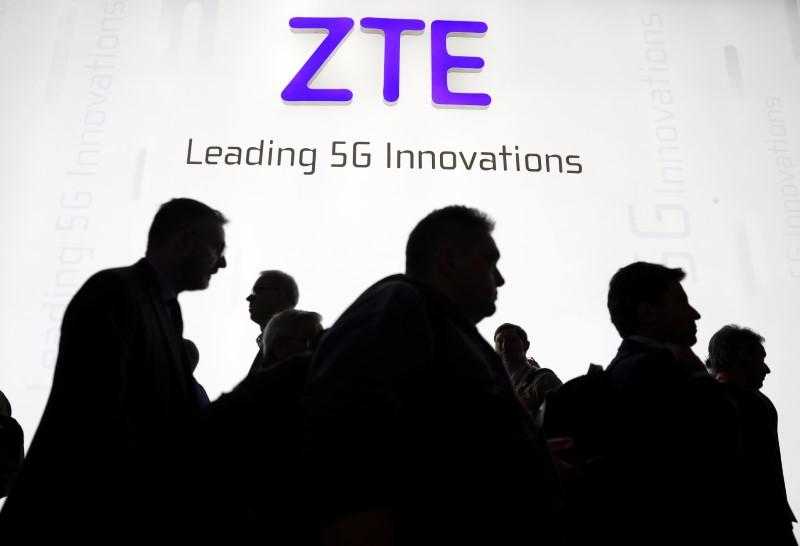WASHINGTON—The Trump administration told lawmakers the U.S. government has reached a deal to put Chinese telecommunications firm ZTE back in business after it pays a significant fine and makes management changes, a senior congressional aide said on Friday.
U.S. President Donald Trump appeared to confirm the deal in a tweet late on May 25. “I closed it down then let it reopen with high level security guarantees, change of management and board, must purchase U.S. parts and pay a $1.3 Billion fine.”
The reported deal involving China’s second-largest telecommunications equipment maker ran into resistance in Congress, where Democrats and Trump’s fellow Republicans accused him of bending to pressure from Beijing to ease up on a company that U.S. intelligence officials have suggested poses a significant risk to U.S. national security.
In April, ZTE was banned from buying U.S. technology components because it broke terms of an agreement it signed for violating U.S. sanctions against Iran and North Korea.. After ZTE makes a series of changes, it would now be allowed to resume business with U.S. companies, including chipmaker Qualcomm.
The deal, earlier communicated to officials on Capitol Hill by the Commerce Department, requires ZTE to pay a substantial fine, place U.S. compliance officers at the company, and change its management team, the aide said.
The Commerce Department would then lift an order issued in April preventing ZTE from buying U.S. products. ZTE shut down most of its production after the ruling was announced.
Fox News said Trump told them on May 24 that he had negotiated the $1.3 billion fine with Chinese leader Xi Jinping in a phone call.
ZTE, which is publicly traded but whose largest shareholder is a Chinese state-owned enterprise, agreed last year to pay a nearly $900 million penalty and open its books to a U.S. monitor. The penalty was issued after the company was caught illegally shipping U.S. tech goods to Iran and North Korea, in an investigation dating to the Obama administration.
The company has lost over $3 billion on doing business with U.S. suppliers, since the April 15th ban, according to a source familiar with the matter.
Trump had previously floated a plan to fine ZTE up to $1.3 billion and shake up its management as his administration considered rolling back more severe penalties that have crippled the company.
Responding to news of the administration’s deal with ZTE, Republican Senator Marco Rubio tweeted: “Yes they have a deal in mind. It is a great deal ... for #ZTE & China. #China crushes U.S. companies with no mercy & they use these telecom companies to spy & steal from us.”
U.S. intelligence and U.S. law enforcement agencies have serious concerns that ZTE and other Chinese telecommunications firms use their equipment to gather intelligence on U.S. citizens.
The U.S. Department of Defense has also stopped selling ZTE’s mobile phones and modems in stores on its military bases, citing potential security risks.
William Evanina, the acting director of the National Counterintelligence and Security Center, said at his May 15 confirmation hearing that he would not use a ZTE phone nor recommend that anyone in a sensitive position in government use one.
Chinese officials sought a pullback on ZTE as part of any broader deal to prevent a trade war between the world’s two biggest economies. U.S. Commerce Secretary Wilbur Ross is scheduled to visit China next week for another round of talks. White House legislative director Marc Short told PBS on May 25 that Ross “would be making that announcement in the coming day” of a resolution of the ZTE issue.
ZTE needs U.S. components for its mobile phones and network equipment. A 2016 report released by a Chinese regime-affiliated think tank found that ZTE purchased 53 percent of chips they used in making their products from American firms, worth $3.1 billion.
As part of the agreements ZTE made last year, it dismissed four senior employees.
Reuters reported earlier this week citing sources that a proposed trade deal with China would lift the ZTE ban. In return, China would eliminate tariffs on U.S. agriculture or agree to buy more farm products from the United States.
By David Shepardson and Karen Freifeld. Epoch Times staff member Annie Wu contributed to this report.




